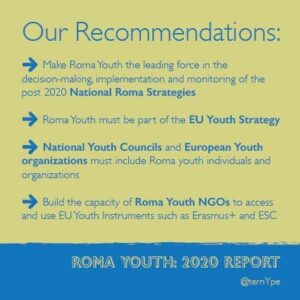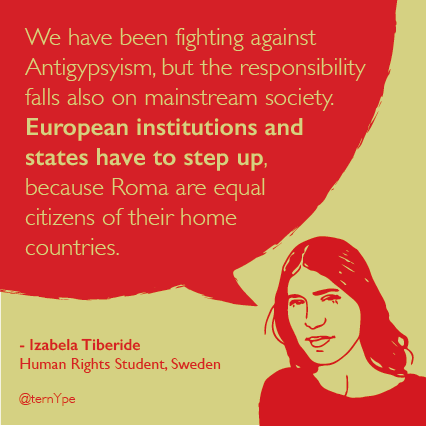Post-2020 European Roma Coalition
In order to ensure a strong commitment and tangible results by European institutions to the post-2020 EU policy on Roma, a number of Roma and pro-Roma civil society organisations have come together and established a Post-2020 European Roma Coalition (working title). The aim of the Coalition is to achieve substantive equality, participation and social justice of Roma in all spheres of life by combating antigypsyism, strengthening Roma and pro-Roma civil society and by fostering principles of good governance into the Roma policies at the EU and national levels, political will and institutional accountability.
The Coalition started being operational on 17 February 2020, on the occasion of the European Commission`s publication of the Roadmap-setting out the EU post 2020 Roma equality and inclusion policy.
The Post-2020 European Roma Coalition welcomes the commitment of the European Commission to develop a reinforced post-2020 European Strategic Framework and calls for an ambitious and binding “Post-2020 European Strategic Framework for Roma equality, social and economic justice, and combating antigypsyism” aiming at achieving substantive equality and full participation of Roma as equal citizens across Europe to be created.
In addition, the joint statement addresses several aspects of the Roadmap that should be fully considered when designing the future EU Strategic Framework, such as:
- Ensuring the fundamental-rights, anti-racism, and empowerment approach;
- Improving governance, policy mainstreaming, and effective implementation;
- Increasing investment of the EU and Member states to Roma communities.
The Coalition is also calling for seven main priority areas to be established under the EU Framework, including: (a) fighting antigypsyism and discrimination; (b) effective empowerment and participation in art, history and media; (c) quality and inclusive education; (d) quality and sustainable employment; (e) quality healthcare and universal health insurance; (f) adequate and desegregated housing and (g) eradicating poverty and social exclusion.
Furthermore, the Coalition asked the European Commission to expand the list of cross-cutting priorities within the EU Framework, including, but are not limited to: Environmental injustice/racism; Gender mainstreaming and intersectional and multiple discrimination with a focus on key priority groups: children, young people, women, LGBTQI+ persons, persons with disabilities, and elderly people; Intra-EU mobility and migration; and Diversity of Roma (Sinti, Travellers, Manush, Kale, and other related groups).
All signatory organisations underlined that Roma and civil society organisations should be an integral part in the design, implementation, and monitoring of the Framework. In addition, the Roadmap should transform Roma participation into a binding common quality standard for the future European Strategic Framework and National Strategies.
The full text of the statement is available here.
The Coalition members which have contributed to the letter include: Alliance against Antigypsyism, Central Council of German Sinti and Roma, Center for Policy Studies of the Central European University, European Network Against Racism (ENAR), European Roma Grassroots Organisations (ERGO) Network, European Roma and Travellers Forum (ERTF), European Roma Institute for Arts and Culture (ERIAC), European Roma Rights Centre (ERRC), Fundación Secretariado Gitano (FSG), Open Society European Policy Institute (OSEPI), Phiren Amenca International Network, Roma Active Albania (RAA), Roma Education Fund (REF), Roma Entrepreneurship Development Initiative (REDI), and ternYpe International Roma Youth Network.






